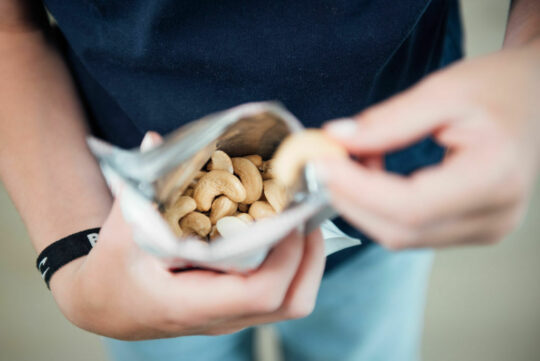BLOOD CASHEWS; CASHEW NUTS, THE NEW BLOOD DIAMONDS?
More than 60% of the cashew nuts consumed worldwide are processed in India. It is a very important industry for the country. Nuts – cashews, but also coconuts and Brazil nuts – are the second most important agricultural product for export, after rice. In 2017, Belgium and Luxemburg together imported more than 34 million dollars worth of nuts from India.
The cashew nut is actually the seed of the cashew fruit that grows on the so-called cashew apples. Intensive processing is required to obtain the nut as we know it. The nuts must be peeled and roasted, among other things. It is necessary to roast them in order to remove a toxic oil.
During the peeling process, an acid is released that burns the skin. Still, peeling is often done by hand and/or in factories where basic protective equipment, such as gloves, is not available. The labour-intensive peeling of nuts is a job that employs a huge amount of people. Almost 500 000 people in India – almost exclusively women – work in the cashew nut industry.
Human rights organizations denounce the poor working conditions in which these labourers are forced to work. They mention the extremely low wages (~2,5 euros a day), with no employment agreements, which means no vacations or pensions. The NGO Anti Slavery even speaks of child slavery in the cashew industry in Guinea and in 2015, the English newspaper The Telegraph reported on labour camps in Vietnam where drug addicts were forced to peel cashew nuts. Precisely for this reason, Time Magazine speaks of ‘blood cashews’.






